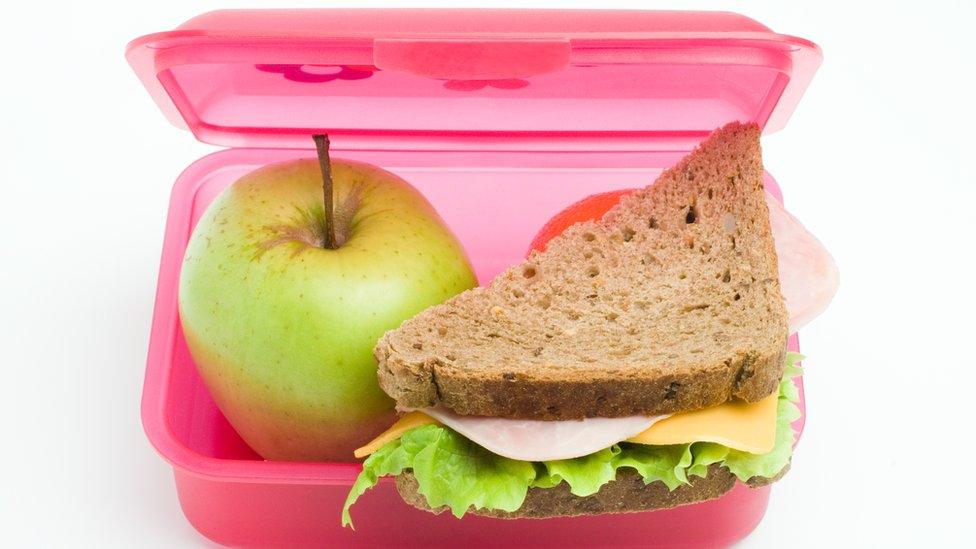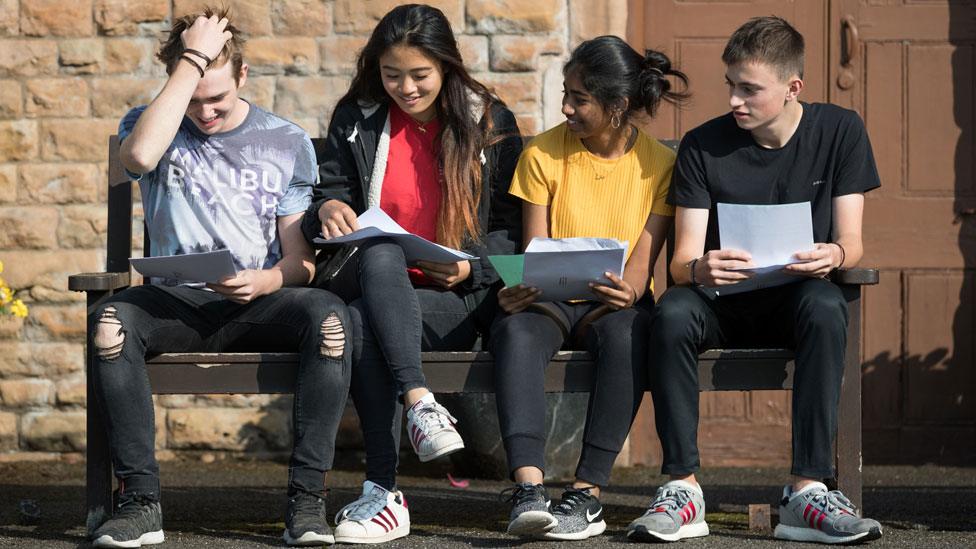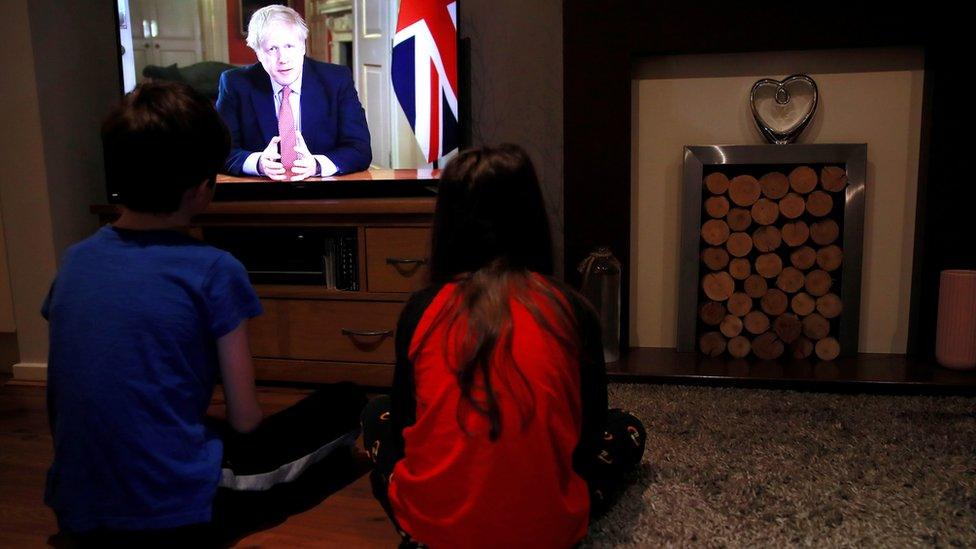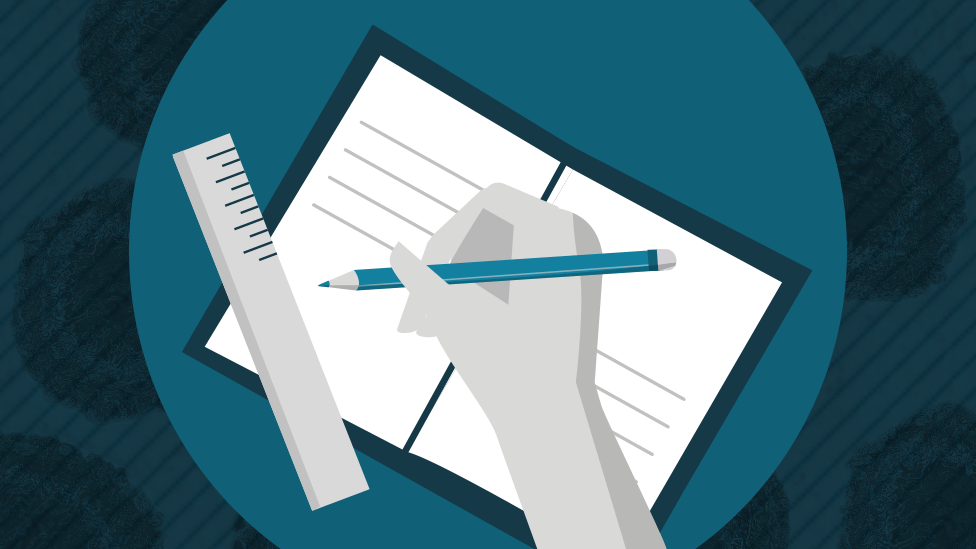Coronavirus: Scientists question school closures impact
- Published
- comments

Countries like the UK that have closed schools to help stop the spread of coronavirus should ask hard questions about whether this is now the right policy, says one team of scientists.
The University College London team says keeping pupils off has little impact, even with other lockdown measures.
But a scientist whose work has informed the UK strategy insists school closures play an important role.
The government has said it will review its coronavirus policies after Easter.
While children can catch coronavirus, they rarely get severe symptoms.
But they can still spread the infection, which is why many countries have closed schools.
What does the research show?
The research, published in The Lancet Child and Adolescent Health, external, looked at 16 studies - some based on the spread of coronavirus, and others on seasonal flu and the 2003 Sars outbreak. The findings suggest:
While school closures help during influenza outbreaks, the same may not apply to coronavirus
Data from the Sars outbreak (in mainland China, Hong Kong, and Singapore) suggest that school closures did not contribute to the control of the epidemic
Recent modelling studies of Covid-19 predict that school closures alone would prevent only 2%-4% of deaths, many fewer than other social distancing interventions
How reliable are the findings?
One of the research authors, Prof Russell Viner, said: "Data on the benefit of school closures in the coronavirus outbreak is limited, but what we know shows that their impact is likely to be only small.
"Additionally, the costs of national school closures are high - children's education is damaged and their mental health may suffer, family finances are affected.
"Policymakers need to be aware of the equivocal evidence."
He says policymakers must weigh up the possible harms and reopen schools at the earliest opportunity - and not necessarily wait until September if it can be done safely sooner.
Prof Neil Ferguson, from Imperial College London, worked on the scientific modelling, external that the current government advice is based on. He says the Lancet research fails to take into account the impact that school closure can have alongside other lockdown measures.
"When combined with intense social distancing it plays an important role in severing remaining contacts between households and thus ensuring transmission declines," he said.

A SIMPLE GUIDE: How do I protect myself?
AVOIDING CONTACT: The rules on self-isolation and exercise
LOOK-UP TOOL: Check cases in your area
MAPS AND CHARTS: Visual guide to the outbreak

What is the UK's current policy?
We have entered the third week since UK schools closed to pupils, with the exception of looking after the children of key workers and vulnerable students.
Nurseries, private schools and sixth forms have also been told to follow the guidance to close their doors.
At the time, Prime Minister Boris Johnson said the move was necessary to "apply further downward pressure" on the virus to avoid a "catastrophic epidemic".
Chief medical officer Prof Chris Whitty also explained that schools were "not dangerous" for children during the pandemic, but that the decision to close them would slow the rise of infections.
Will it change?
The government says it will be guided by the science in terms of when to lift any of the restrictions it has put in place to help slow and suppress the disease.
New cases and deaths from coronavirus continue to rise, suggesting the UK is not yet at the peak of the outbreak and tough restrictions are still needed to ease pressure on the NHS and save lives.
Is it even practical to let schools reopen?
The measures that have been urgently put in place to fight the virus, including school closures, work in combination with each other.
While some have more of an impact than others, it may not necessarily make sense to lift just one.
For example, even if schools were allowed back, the social distancing measures that we are all being asked to heed, which experts say are very effective, would probably have to remain.
So children going back to school would probably still have to follow the stay-at-home advice outside of school, and also the 2m close-contact rule while in school.
There's also the staff to consider - some may be in high risk groups who should not work away from home.
Prof Viner says schools could have a phased comeback - banning or limiting playtimes and scheduling some part-time classes for pupils to reduce mixing, for example.
"There's a whole range of things that schools could do to reopen in a way that involves social distancing at schools but keeps schools open."
He said that opening schools should be part of the early step away from lockdown.
What do other experts think?
Dr Samantha Brooks, from King's College London and team member of the NIHR Health Protection Research Unit in Emergency Preparedness & Response, said: "The finding that school closures have at best only a small impact on the spread of Covid-19 is of great significance, especially linked with the sensible suggestions for how a gradual return to normal schooling could be implemented."
Prof Robert Dingwall, professor of sociology at Nottingham Trent University, said: "This is an important study that confirms what many of us suspected, namely that the public health benefits of school closures were not proportionate to the social and economic costs imposed on children and their families.
"It also underlines how the assumptions used in modelling the pandemic may rest on very flimsy foundations in terms of scientific evidence. This work suggests that UK schools could, and should, begin to reopen as soon as practicable after the initial wave of cases has passed through."
Fitness guru Joe Wicks is running free online PE classes for children in self-isolation
- Published6 April 2020

- Published3 April 2020

- Published24 March 2020

- Published23 February 2022

- Published3 April 2020
